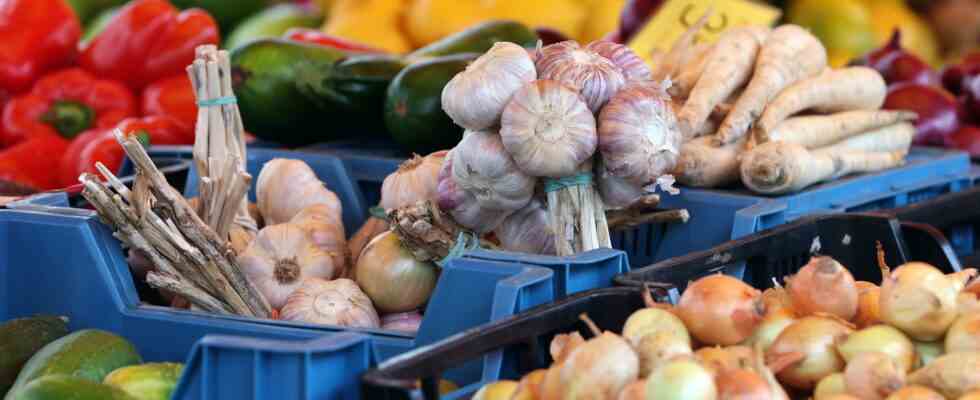Status: 01/18/2023 2:08 p.m
Fresh vegetables have become significantly more expensive in the past year. According to the Federal Statistical Office, prices have risen by more than ten percent. At the same time, the demand for fruit and vegetables fell.
Consumers had to pay significantly more for vegetables last year than a year earlier. The prices rose by 10.7 percent, as the Federal Statistical Office announced on the occasion of the Green Week starting on Friday. Cucumbers (plus 26.2 percent) and tomatoes (plus 16.9 percent) rose in price particularly strongly. The price increase for fruit was much more moderate, costing three percent more than a year earlier.
Overall, consumers had to spend 13.4 percent more money on food last year than in the previous year. Meat and meat products became even more expensive (+14.6 percent). By way of comparison, consumer prices as a whole rose by an average of 7.9 percent over the same period.
At the same time, people bought 6.4 percent less fruit and vegetables. For fruit, the decline was greater at 7.3 percent than for vegetables at 5.4 percent. In addition to the high price increases, the reason could also be the elimination of the corona restrictions in the catering trade, according to the statisticians. They recorded the greatest drop in demand in the months of January, March and May, and things picked up again slightly in December.
Other food taxation called for
The consumer organization Foodwatch reiterated its call for the VAT on fruit and vegetables to be abolished. This would immediately relieve the federal government of people with little money. The environmental organization WWF spoke out in favor of reducing or eliminating VAT on healthy products such as fruit, vegetables and legumes in the short term. In the medium term, a fundamental reorientation of food taxation towards a sustainability tax is necessary.
The Federal Consumer Association (vzbv) also called on the federal government to take “decisive steps” to initiate a change in diet. Specifically, the vzbv insists on strict regulation of food advertising aimed at children, the abolition of VAT on fruit, vegetables and legumes and the fight against misleading climate statements (greenwashing) for food.
“In terms of agriculture and food policy, Germany cannot afford to continue like this economically and ecologically,” explained vzbv boss Ramona Pop. “Our food system is not sustainable and is at the expense of future generations.” Pop called it a “scandal” that a balanced diet was “impossible” for many people on low incomes in a country as rich as Germany.

